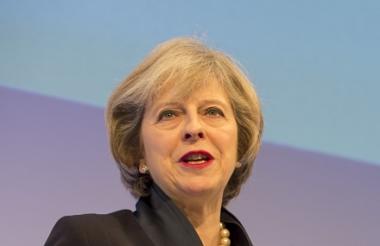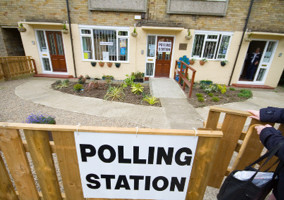What effect will Theresa May’s announcement have on charities' finances and campaigning activities, asks Gareth Jones.
And so, two days before Charity Finance was due to go to the printing presses, Theresa May unexpectedly announced that she intends to call a snap general election in June. Fortunately, while this is all very exciting for followers of politics, none of us need completely rip up our plans in the short term.
The immediate impact is actually quite positive, as the pound strengthened to a four-month high against the dollar. The weak pound significantly hit the spending power of charities that work overseas and any reversal of that trend is very welcome.
Deutsche Bank reflected market optimism by arguing that an election will dilute the influence of those in the Conservative Party pushing for “hard Brexit”, and strengthen the more moderate stance of the Prime Minister. The pound is unlikely to bounce back to where it was a year ago, but this helps.
Campaigning
As for charity campaigners, it will be time to renew their efforts to affect government policy, although the scale of the opportunity can be overstated.
Theresa May will no doubt be looking forward to no longer being bound by the previous Tory manifesto. One would expect much of the groundwork for this document to have already been laid behind the scenes, but perhaps there is still some meat to be put on the bones of the shared society agenda?
Labour, meanwhile, is almost irrelevant given its status in the polls, though a strong policy announcement from them could put pressure on the Conservatives to follow suit. Unfortunately for campaigners, the party is understood to have been preparing for a snap election for some time, and may even use its 2015 manifesto as a template, so the scope for new ideas is limited.
Overall, changing policy is a long-term game. The most effective charities will have spent years banging their drum and building relations with decision-makers, so this is more time for the final push than for token efforts.
As NCVO’s senior external relations officer Chris Walker puts it: “Approval for new radical ideas is going to be much harder to achieve in such a short timescale, so aside from the obvious need to influence policies around Brexit, I would focus on encouraging parties to reaffirm existing commitments.”
Lobbying Act
What may be more interesting is how charities work with the Lobbying Act this time around.
Charities are allowed to campaign as long as they stick to addressing policy issues on a cross-party basis.
However, in the run up to the 2015 general election, the Commission on Civil Society and Democratic Engagement said it had received clear evidence of “a chilling effect” among charities. Will it be different this time?
The risks must be managed sensibly, but charities must also be brave and speak their mind, despite the recent news that Greenpeace and Friends of the Earth have been fined (not enormous amounts) for breaching the Act during 2015.
The next government
Looking beyond the election, there may not be too much in the way of exciting change here either. Assuming the Conservatives win, the shared society could bring a new emphasis, but the transition is unlikely to be as drastic as in 2010, when the party was newly coming to power.
Putting all of this together, therefore, charities will need to keep on plugging away as they have been doing, but shouldn’t expect a quick fix from this surprising news.
|
Related articles












